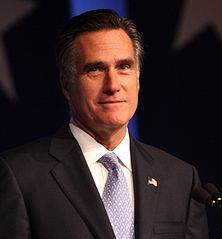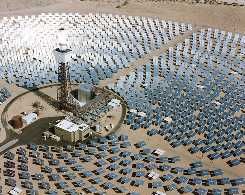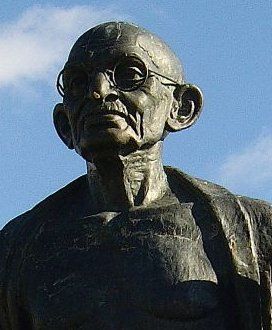We Sure Have Taken a Turn for the Worse, Haven't We?

One could argue that there are professions that don’t require even a basic level of compassion: maybe prison guards, pest exterminators, or traffic cops. Whether or not that’s true, serving as the leader of a free and honorable country isn’t among those jobs.
I often wonder: What’s happened recently that has brought us to the point that almost half of the U.S. electorate will go to the polls in November and vote for this guy to run our country? How, in a period of just a couple of decades, could we have fallen so fast, and become so desensitized? Is it just my imagination? Weren’t we better, smarter people 20 years ago? I have my own theories on this, but I’m more interested in hearing yours.

 A friend just sent me a note on this compact, consumer-oriented
A friend just sent me a note on this compact, consumer-oriented  Here’s part of an invitation to one of the most important
Here’s part of an invitation to one of the most important  At a party yesterday, I ran into a top-flight businessman who sells advanced sonar systems to the world’s navies. I happen to know that he spends a huge amount of time in India, and I wanted to ask him about tips to avoid getting sick – a plight that befalls a great number of Americans travelling there.
At a party yesterday, I ran into a top-flight businessman who sells advanced sonar systems to the world’s navies. I happen to know that he spends a huge amount of time in India, and I wanted to ask him about tips to avoid getting sick – a plight that befalls a great number of Americans travelling there.  I just came back from an annual chili cook-off at a home of a dear friend. My recipe, which my kids and their friends adore, came in second place in the popular vote two years ago, but hasn’t been able to place since. Next year, I have a totally different approach that I’m looking forward to trying. More on this later, as if you could possibly care. 🙂 In any case, great people, fantastic food, and a ton of interesting ideas thrown around all afternoon and evening.
I just came back from an annual chili cook-off at a home of a dear friend. My recipe, which my kids and their friends adore, came in second place in the popular vote two years ago, but hasn’t been able to place since. Next year, I have a totally different approach that I’m looking forward to trying. More on this later, as if you could possibly care. 🙂 In any case, great people, fantastic food, and a ton of interesting ideas thrown around all afternoon and evening. I always enjoy the opportunity to talk with college students about their aspirations and their observations from the perspective of their young lives. Last night I stayed at the home of one of my best friends from my boyhood, which gave me the chance to speak with his highly accomplished elder daughter, who just entered UCLA (University of California at Los Angeles) as a freshman. In the course of the talk, she mentioned that all incoming students receive a heavy indoctrination that their school’s cross-town rival, USC (University of Southern California), is “the enemy”; all freshmen take a pledge that they will forever regard USC and its people as such. I suggested that this must be a kind of joke that no one takes seriously, but she assured me that the entire ritual is completely serious.
I always enjoy the opportunity to talk with college students about their aspirations and their observations from the perspective of their young lives. Last night I stayed at the home of one of my best friends from my boyhood, which gave me the chance to speak with his highly accomplished elder daughter, who just entered UCLA (University of California at Los Angeles) as a freshman. In the course of the talk, she mentioned that all incoming students receive a heavy indoctrination that their school’s cross-town rival, USC (University of Southern California), is “the enemy”; all freshmen take a pledge that they will forever regard USC and its people as such. I suggested that this must be a kind of joke that no one takes seriously, but she assured me that the entire ritual is completely serious. I took most of the day off yesterday to be a part of a family outing at the Los Angeles County Fair. While the kids were on the rides, I wandered off on my own to check out as many eco-friendly solutions as I could find in the “home and garden” area, including a clever new approach to
I took most of the day off yesterday to be a part of a family outing at the Los Angeles County Fair. While the kids were on the rides, I wandered off on my own to check out as many eco-friendly solutions as I could find in the “home and garden” area, including a clever new approach to